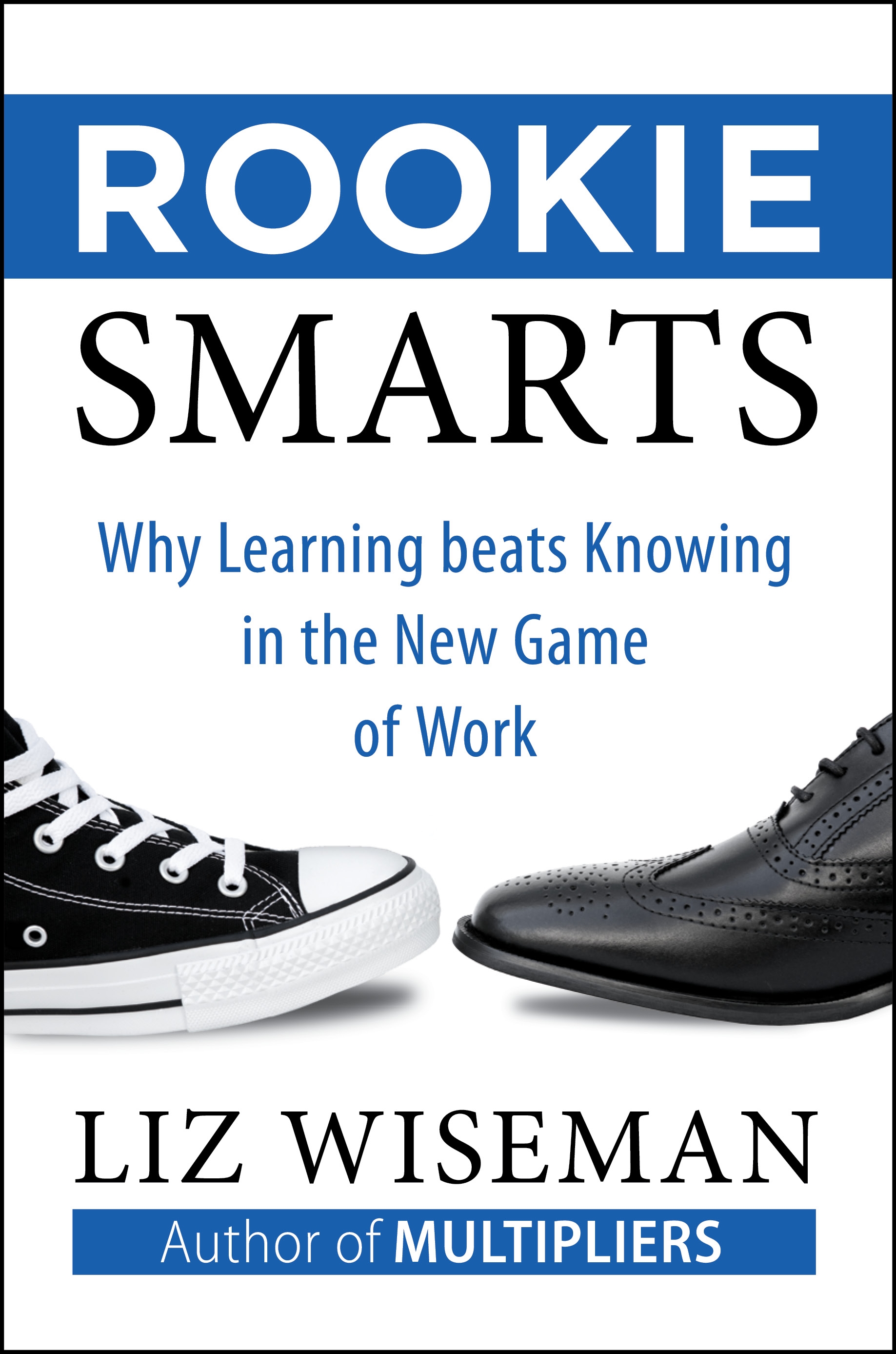Mastering The Stretch
By Liz Wiseman
The best leaders bring out the best in others. They inspire people’s best thinking and finest work. They not only encourage and empower but are challenging and demanding. They set high expectations, push people to the edge of their comfort zone, and then hold others fully accountable. When leaders don’t hold the highest of expectations, they hold people back.
While encouraging others comes easily to many women, playing the role of challenger can be, well, a real challenge. It is hard to ask people to do something they don’t yet know how to do. We know it will be hard on them as they scramble up a steep learning curve. But it’s in this rookie space – doing something for the first time that is hard – where people do their best work.

In my research for my book, Rookie Smarts, I found that rookies are surprisingly strong performers. They listen carefully, marshal experts and work quickly, conducting small experiments and frequently checking in with stakeholders to mitigate risk. In knowledge industries, rookies tend to outperform experienced professionals – especially in innovation and speed. And they are particularly valuable in a rapidly changing world where business cycles are spinning faster and faster.
Not only do people tend to do their best work when they are rookies, it is also their happy place. In a survey of approximately 1,000 people from a variety of industries, my team found that as challenge level goes up, so does satisfaction.
Women are natural leaders, especially when it comes to many of the skills prized in the modern workplace, such as collaboration and the development of talent. But many women don’t readily cast themselves in the role of challenger and struggle to stay “in character” once in this role. Why?
Many women have an aversion to working outside of their comfort zone. Our survey results showed that women are 12 percent less likely than men to take a job that was “two sizes too big.” Perhaps we have been so long proving our capability that we gravitate to where we are competent. Or, we might be stretched thin in so many domains that we worry that one more might break us.
Women can also be reluctant to ask people to be uncomfortable. It can be easier, and certainly more fun to take a “cupcakes and kisses” approach to leadership. When we do courageously ask people to tackle new, difficult assignment, we quickly empathize with their inevitable struggle. When the “relieve suffering” gene kicks in, we jump in and rescue. But, when leaders rescue too early or too often, we starve people of the learning they need to perform at their best and to stay relevant.
So, what is the lesson for managers?
1. Mix things up. Although it’s important for your employees to stop and celebrate success or just catch their breath, they might also be ready for the next challenge sooner than you think. On average, people report being ready for a new challenge just three months after being given a challenging assignment. Don’t let people linger too long in a job they are qualified for.
2. Size the stretch right. When people are at the bottom of a learning curve, they need the right size challenge – one that is big enough to really stretch them, but not so big as to break them. When in doubt, start small and help them build a series of successive wins.
3. Be a safety net, not a rescuer. The best leaders and mentors not only place someone up on the tightrope; they are there to catch them when they fall. Don’t jump in and do the hard things for them, but do provide a safety net to help them bounce back.
4. Women excel in the rookie zone. My research also showed that women have higher levels of “rookie smart” skills than men. It appears women may need more encouragement to step into a rookie role, but once there, they can draw on their natural rookie smarts.
If you want to be a leader who brings out the best in your people, get comfortable asking others to be uncomfortable. If you are naturally supportive, try supporting someone’s development by challenging them. You’ll inspire them to do their best work and help them stay relevant in fast moving world.
And, maybe the person most in need of a new challenge is you.
Liz Wiseman is the author of Rookie Smarts: Why Learning Beats Knowing in the New Game of Work and Multipliers: How the Best Leaders Make Everyone Smarter.
-
Good advice, I think. Interestingly, I’ve had three female bosses in past years who were anything but reluctant to ask their people to be uncomfortable, as you put it. They shared one characteristic and that was an abundance of self-confidence. No “cupcakes and kisses,” but bordering on command and control. They pushed the men and women equally, and somewhat mercilessly. Had they long since moved out of their rookie mindset, do you think? And why do some leave it far behind? What changes them? Maybe beyond the scope of your article, but it got me thinking.


Comments